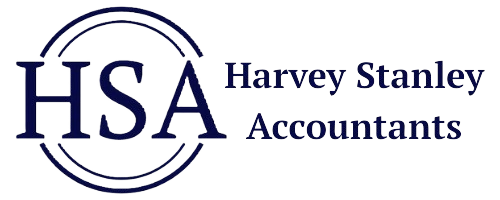How to Pay Yourself Smarter as a UK Company Director
Running a limited company gives you huge flexibility in how you manage profits — but too many directors accidentally pay more tax than they need to.
Why?
They rely on their accountant to "handle the numbers", but never ask the right questions
They miss opportunities because they’re busy growing the business
They leave tax planning too late — scrambling in January instead of preparing in April
Sound familiar? You’re not alone. Even savvy directors can miss simple ways to optimise their tax position — especially after recent Corporation Tax changes.
Why This Matters
As a company director, you control the business, and you are ultimately accountable. A smart pay structure can:
✅ Put more cash in your pocket
✅ Lower personal and company tax
✅ Help manage future pension contributions
✅ Avoid surprises from HMRC
The result? Pay less tax and take full advantage of reliefs — with a structure that adapts as the rules change.
Salary vs Dividends: What's the Difference?
Salary: Paid through payroll, subject to PAYE income tax and National Insurance. Salary is taxed at source and the company pays the tax on your behalf. Also, counts towards qualifying for state pension and benefits.
Dividends: Distributed to shareholders from post-tax company profits (no National Insurance). Dividends are taxed at separate rates and declared on your self-assessment tax return.
Common Mistakes Directors Make
1️⃣ Taking too little salary — missing out on state pension qualifying years
2️⃣ Taking too much salary — paying unnecessary National Insurance
3️⃣ Failing to plan for dividend tax liabilities
4️⃣ Sticking with an outdated split as tax thresholds change
How to Optimise Your Pay
Of course, every director’s personal tax situation is unique — we always recommend personalised advice. But here are common ways directors can optimise:
✅ Pay yourself enough salary to qualify for the state pension, but below the main NI threshold (£12,570 for 2025/26). Note that the business will incur NI charge but this is corporation tax deductible.
✅ Take additional income as dividends from profits after Corporation Tax, and review how much income you need to avoid overpaying unnecessary personal tax.
✅ Adjust your salary/dividend split as tax rules change. This is not a set-and-forget decision.
✅ Consider company pension contributions . These are deductible for Corporation Tax and can be highly efficient to save for retirement and lower your tax bill.
✅ Plan ahead for personal tax due on dividends. Key dates to remember; 31 January (first payment), and 31 July (second payment on account).
An annual review of your business performance and your personal tax position can make a big difference. Especially with Corporation Tax changes now affecting more companies.
Next Steps
If you want to:
✅ Pay yourself more efficiently
✅ Reduce your overall tax bill
✅ Stay compliant with HMRC
✅ Plan your income for the year ahead
👉 Book a free (no obligation) call — email us at support@harveystanley.co.uk.
We help UK company directors structure their pay the smart way — so you keep more of what you earn.
